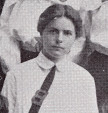I do not drink tap water. In fact, in the last few years I really can’t recall drinking tap water (except in the most extreme exigency) at all. We own a water cooler and have five-gallon carboys of water delivered to our house. We also have a water cooler at work. On the rare occasions that I have forgotten to bring my water bottle to fill up, I have bought a bottle from the vending machines on campus. (At over a dollar a pop, you don’t want to do this very often.)
I am not an extreme germophobe or even very paranoid—since I don’t really drink soda or juice, I drink a lot of water, and I just don’t like the taste of tap water. And evidently I am not alone. Go to any supermarket and you will see an entire aisle of bottled water choices, all with enticing brand names. (My favorite is “Smart Water”—if only it really worked!) We have been convinced by the manufacturers of these products that bottled water will make us healthier, stronger, even smarter (although two of the major brands are nothing more than purified tap water). Trendy restaurants even have water sommeliers to advise us on the correct choice to complement our meal. This craze can be seen at its most sublime (or ridiculous) extent in “Bling H2O,” which comes in a frosted bottle decorated with Swarovski crystals. Price: around $35-50.
As we become a nation of bottled water drinkers, however, this habit becomes problematic in several ways. First, and most obvious, is the problem of the empties. Since a lot of bottled water is consumed away from home, not every empty plastic bottle makes its way to the recycling bin, even in California, one of the few states to include plastic water bottles in its bottle bill. In fact, according to the Container Recycling Institute, 86 percent of these end up as garbage or litter. When these plastics are incinerated, they release toxic chemicals such as chlorine gas. Second, the manufacture of plastic bottles uses crude oil. I drive a hybrid, not a luxury sedan or an SUV, because I feel it is a better choice for the world. Shouldn’t I operate under the same philosophy with regard to the water I drink? Shipping exotic bottles of water thousands of miles from their point of origin (Fiji, for example, or Finland or New Zealand) to the United States uses huge amounts of fossil fuels. Even more ironic: many of the empty bottles are shipped off to be recycled to foreign countries such as China, using even more petroleum.
When I think about this habit in the context of my faith, however, another problem arises. At the end of a recent church function, a veritable mountain of empty plastic bottles filled two large bags. Used once, their contents swiftly drained, they now were on their way to the recycling bin. I couldn’t help thinking about the money. Why, when we had perfectly good, free tap water, were we, as a church, buying bottled water, with all its costs (obvious and hidden)? It is, in fact, quite literally conspicuous consumption. Jesus teaches us by example to be frugal: after feeding thousands with the loaves and fishes, he instructs his disciples to go around and pick up the leftovers. When so much of the world struggles on a daily basis to obtain drinking water of any quality, our use of these products only reinforces the gap between us and our poorer brothers and sisters: if this trend continues, if only those who cannot afford bottled water are forced to drink from the tap, will there be the same impetus to guard the safety of public drinking water?
At the end of the classic film Casablanca, Inspector Renault dumps his ubiquitous bottle of Vichy water into the trash as a symbol of his newly found patriotism. This season of Lent, I am trying to put my principles where my mouth is: I am drinking… (gritting my teeth) tap water. Each time I fill my 20-oz bottle with tap water, I’ll put a quarter into a jar. At the end of Lent, the money will be sent off to the Episcopal Relief and Development Fund. And each time I’ll think about how lucky I am to live in a country where clean, safe water is just a turn of the tap away.

